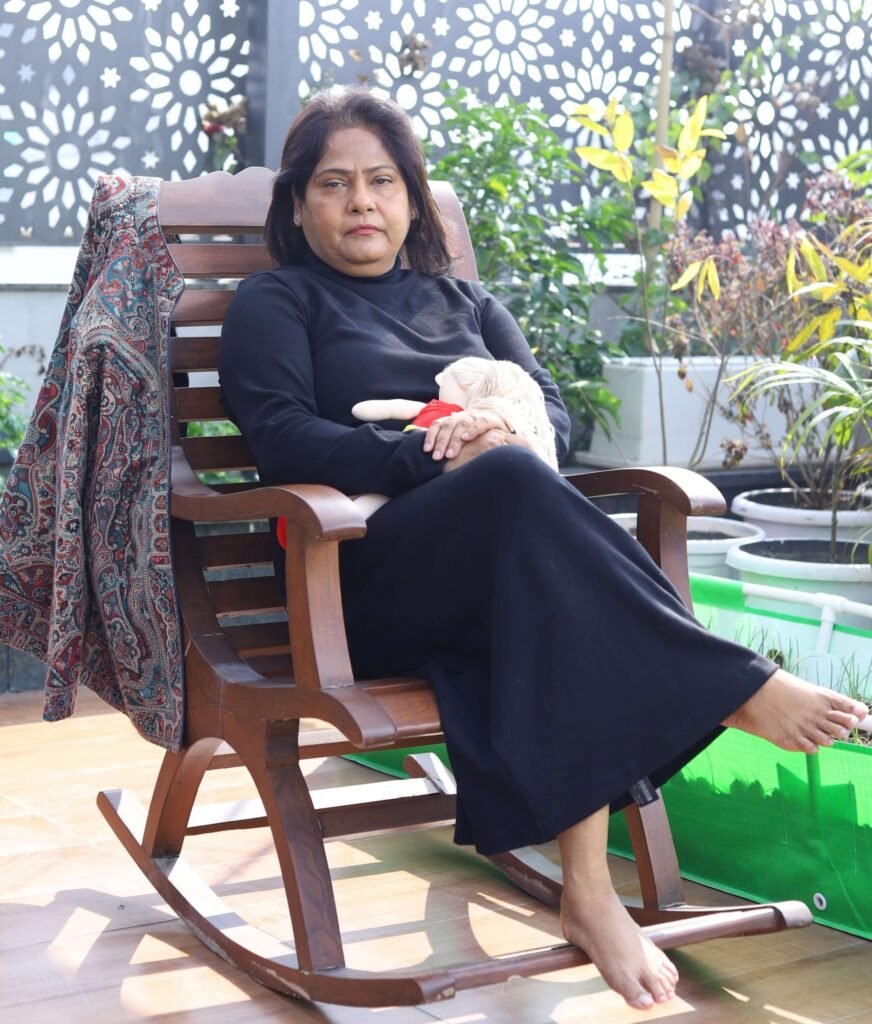
AN OVERVIEW
Mayabritta or The Circle of Illusions is about the ephemeral nature of reality, and the intricate dance of experience and perception. More than a novel, it is a mirror of the author’s convictions—shaped by her personal journey and societal tides. With prose that is compelling and incisive, the narrative beckons the reader to interrogate entrenched norms, and traverse the emotional and intellectual landscape of a protagonist whose indefatigable will dismantles the formidable bastions of patriarchal dogma.
Departing from her signature oeuvre of historical fiction, this novel emerges as an intricate social metanarrative—an astute commentary on contemporary existence. The story unfolds through the lens of a resolute woman, born into an environment steeped in regressive ideologies, where the weight of gendered bias and colorism seeks to suppress her spirit. Yet, she ascends against these forces, wielding fortitude as both weapon and shield, forging her path to literary eminence.
Expansive in its thematic reach, Mayabritta is a masterclass in narrative craftsmanship, where the physical and metaphysical coalesce. The protagonist’s journey is not merely one of individual triumph but a resonant allegory of perseverance against a world resistant to change. Chowdhury’s prose is a symphony of evocative detail, dexterously sculpting characters and weaving an intricate tapestry of human experience. The novel enthralls as much as it edifies, subtly instilling its socio-philosophical discourse into the reader’s consciousness.
Like the sinuous Ganga—the real-time backdrop— the story flows unpredictably, interwoven with myth, folklore, and nature as a silent force. At every turn, it reflects on social disparity, cultural heterogeneity, gender hegemony, and environmental decline, inviting the reader to question the very fabric of existence. Captivating and enlightening in equal measure, this is a deeply thought-provoking read.
EXCERPTS OF REVIEWS
GoodReads – Mayabritta by Rita Chowdhury has garnered positive feedback from readers. On Goodreads, the novel holds an average rating of 3.94 out of 5, based on 47 ratings and 2 reviews. One reader, Barsha, commented that the book resonates with sensitive and kind individuals, shedding light on often overlooked topics, though she expressed slight disappointment with the ending.
Amazon India – The book holds an average rating of 4.5 out of 5 stars on Amazon India based on 26 global ratings. Readers have praised it as a favourite, with comments highlighting its engaging narrative.
Flipkart – Mayabritta has received a 4.7 out of 5 stars rating on this platform from 37 users… the high rating indicates strong reader satisfaction.
‘Eco-Criticism: A Study of the Novel Mayabritta’ – This academic paper highlights the novel’s exploration of environmental themes and its intricate subplots, emphasizing its significance in contemporary literature

AUTHOR’S VOICE
‘The genesis of Makam lies in a small incident that happened decades before I actually wrote the book. I was a college student then, and happened to be passing through Makum (the last railway junction in upper Assam), when I noticed a few Chinese people on the roads. I was curious – what were they doing in this remote part of Assam? Someone mentioned that these Chinese people had been brought here during World War II. The story stayed with me, and years later I decided to find out more… My research brought to light a long forgotten chapter of history, the tragedy that befell the Assamese Chinese community during and after the Sino-Indian War of 1962. It struck a chord in me, and touched my heart deeply. I took it as my responsibility to bring the story to light, hushed up for almost 45 years. During the war, a community so closely attached to the greater Assamese society suddenly vanished. No one knew where they went nor did anybody try to know what happened to them. I met many victims living in Assam and other parts of India and abroad, especially Hong Kong. It became my mission. It took me four years to assimilate all the facts and write the novel.’
And so was born Makam / Chinatown Days, a coffee table book, The Divided Soul and a documentary ‘War and Tears’.